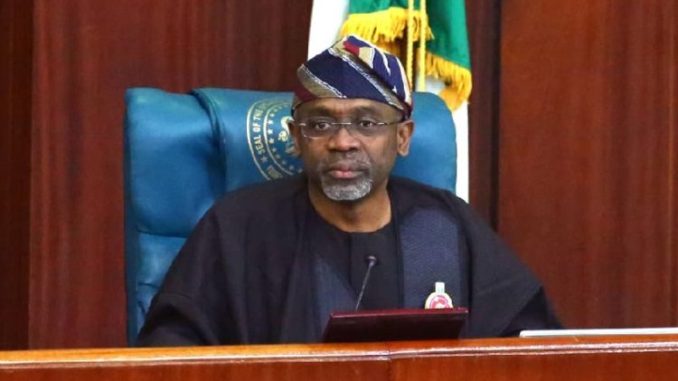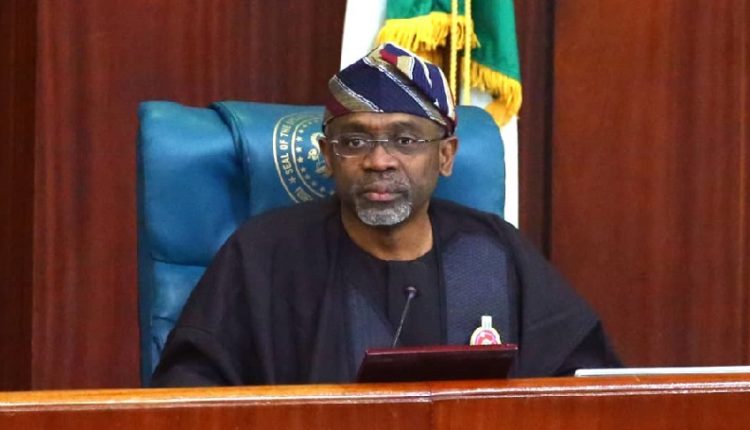
With advent of the social media space, there has been a global information overload, as access to the internet is on a steady rise. Greatly worrisome and in contention amidst all remains the spread of fake news. JOSHUA EGBODO writes on the recent call on professionals for steadfastness by Speaker Femi Gbajabiamila
A threatening dimension
While to many advocates of free speech as contained in laws and international conventions, there may be nothing wrong with the social media space which has given citizens unhindered path to participating in public discourse on any matter of interest.
But some pundits have continued to fault the unguarded attitude of many users. Instances were cited of deliberate falsehood being peddled as news, while in so many cases, videos are harvested from one source(s) and attributed to unrelated event(s), as fact-checks will later reveal.
Both the highly placed personalities, and or institutions as well as the common man are not segregated in the negative impact created by the spread of falsehood. At the extreme is the use of the social media space for fraudulent enterprise, to which many have fallen preys, including death.
Government’s attempted regulation
There had been several attempts in Nigeria towards regulating the social media. The Senate with the introduction of Bills seeking regulation of the social media space faced stiff resistance from civil society organisations and the citizens at large. The moves were considered as attempts at gagging the citizens in breach of their rights to free speech.
In November 2019, the Protection from Internet Falsehood and Manipulations Bill 2019 was introduced. The sponsor, Senator Mohammed Musa, had argued that it would help to curb fake news on the Internet. “It is a legislation that will guide how we can tolerate our activities on the social media. False information has been disseminated so many times and they have caused so many chaos in different parts of the world,” he stated.
In March the following year, public hearing held on both the Hate Speech Bill and Protection from Internet Falsehood and Manipulations Bill, many Nigerians voiced their opposition against them. The bills were, after perceiving the societal pulse, quietly rested by the Senate.
Another attempt was at the House of Representatives, but this time, proposals to amend two extant laws; the National Broadcasting Commission (NBC) Act, and the Nigeria Press Council (NPC) Act. These came in the wake of government’s reaction to the suspension of the operations of micro-blogging platform, Twitter in Nigeria, following the platform’s decision to remove a post perceived to be in breach of its user policy by President Mohammadu Buhari.
President Buhari’s tweet in which he threatened to treat some persons “misbehaving in the language they understand” on Wednesday, June 2, 2021″ after reports of arsonists burning down public offices in some parts of the South East, sparked a wild reaction, especially, as references were made to Nigeria’s civil war of between 1967 and 1970, during which millions of Nigerians, mostly of Igbo extraction died. The government came down hard on the platform as it deleted the post the following day.
After the suspension of Twitter operations in Nigeria, the federal government at different instances presented several reasons on why the social media space should be regulated. The NBC later asked all social media platforms and online broadcasting service providers to apply for broadcast licence, warning that “any online broadcast service provider that fails to obtain a licence will be considered an illegal entity”.
The House’s Bills
While the controversy lasted, a public hearing on the Bills seeking to amend the NBC Act 2004, and that to amend the Nigeria Press Council (NPC) Act, presented by Hon. Odebunmi Olusegun who chairs the Information Committee, was organised in the House of Representatives, during which their promoter argued that they were aimed at moderating perceived recklessness of the media.
At the public hearing, the Minister of Information and Culture, Alhaji Lai Mohammed asked the House to amend the NBC Act to expand its powers to regulate the social and online media. Section two (b) of the NBC Act states: “(1) The Commission shall have (the) responsibility of: Receiving, processing and considering applications for the establishment, ownership or operation of radio and television stations including (i) cable television services, direct satellite broadcast and any other medium of broadcasting”.
But the federal government posited that the commission should also be able to regulate the online media in addition to other channels of broadcasting. “I want to add here specifically that Internet broadcasting and all online media should be included in this because we have a responsibility to monitor contents, including Twitter,” the minister had insisted.
Opposition yet persists
In spite of several justifications put forward by the government, including but not limited to threat to security and the existence of Nigeria as an entity, opposition to the proposals and any other form of regulation continued. In the opinion of many, the government may have been genuinely concerned, especially when such concerns were coming at a time the country was faced with plethora of security challenges.
Gbajabiamila’s suggestions
With the worrisome threats failing to abate, majority of Nigerians have learnt to adapt to the social media space as a necessary evil. However, Speaker of the House of Representatives, Hon. Femi Gbajabiamila at a training engagement which his office last week, put in place for journalists covering the House advised the real professionals to uphold the ethics of journalism practice, in spite of the challenges posed by the social media.
The Speaker reminded participants that the role of the media in a democracy as multi-
faceted. “You inform the public and you educate them about
the law and government, politics and governance. You record
history as it happens and preserve the national memory as a
guide and warning for the future. And you hold power to
account, ensuring that those who are chosen to serve the
public interest keep faith with the citizens who depend on
them. Democracy will not long survive without a vibrant,
independent, innovative and patriotic press”.
According to him, “through the years, technological advances, the
rapid increase in access to internet services, and the growth
of social media has changed the way we receive and interact
with news and information. What we understand as the
professional press – newspapers and magazines, television
and radio – are now in competition with every member of
the public with a smartphone, access to the internet and the
inclination to participate in the public discourse”.
The Speaker noted that “While the landscape within which the press operates has changed in dramatic ways, the duties of the
press and the public expectation of them remains the same.
We expect journalists and media organisations to maintain a
high level of professional conduct; we demand accurate
reporting and detailed analysis of public policy and expect
the media to continue to defend citizens’ rights, hold the
powerful to account and promote the public good through
the honourable practice of journalism.
“Often lost in the conversation is the fact that after
all is said and done, media is a business. Quality journalism
doesn’t happen in a vacuum, it requires resources to train
and equip staff, and invest in technology to improve content
quality and broadcast capabilities, amongst other things. For
generations, these resources have come from the sales of
newspapers and magazines and from advertising and
subscriptions. For the last two decades, the proliferation of
online sources has decimated sales and precipitated a drastic
and rapid decline in advertising income.
“Like all other businesses, the imperatives of
commerce and profitability cannot be ignored as they are
critical factors affecting the quality of service and the utility
of outcomes. Consequently, we are called to confront an
existential question – how do you finance a quality press
without access to the income sources that ensured viability
for so long? This is a question that media managers all over
the world are struggling with, and are trying to answer
through innovation and experimentation, with different
degrees of success and inevitable failure. However, the
essential functions of a free press in a democracy, demand
that all of us – citizens and leaders alike – must participate in
helping to find answers to this question.
“For us in Nigeria, the obligation is ever more
powerful, and the consequences of failure are potentially too
high to contemplate. Ours is a complex and complicated
country where an inaccurate public broadcast, whether done
maliciously or carelessly, can just as easily spark public
debate, or lead to blood on the streets. In fact, a broadcast
doesn’t need to be false to lead to bloody conflagration. Sometimes, it is merely a matter of timing or
misunderstanding.
“The surest safeguard against such dire outcomes is
to have media organisations that are unbiased purveyors of
objective truth. We need journalists we can rely on to be our
islands of accurate information and context in a sea of
misinformation and propaganda manifesting as journalism.
Having such organisations and individuals may in time to
come, prove the difference between progress and regression
and between peace and strife”.
Will regulation ever be?
In the opinion of analysts, the options put forward by the speaker appeared to be the best, as they appeared to be more of self-regulation through professional ethics by practitioners, but worried that the government may never give up soon. Many felt the government is on the right path, but have submitted to the fate of time, if ever regulating the social media space will be a success in a plural society like ours.
